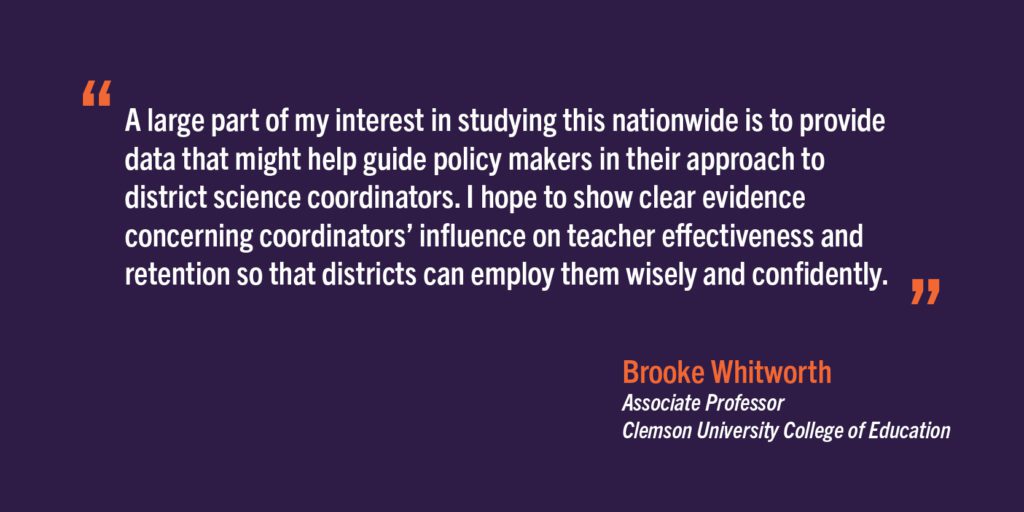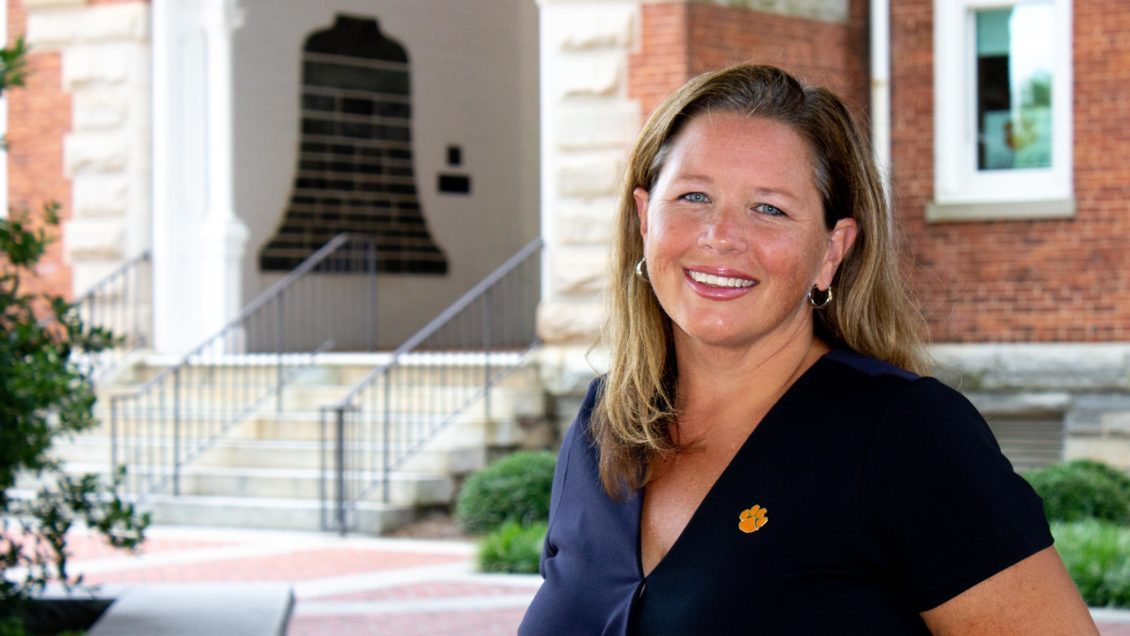Research from the National Science Board shows that 25% of secondary math and science teachers leave the profession by their third year of teaching, and math and science teacher turnover is most pronounced in schools that are racially or ethnically diverse that have a significant number of students in poverty.
A Clemson researcher will use a nearly $1 million award from the National Science Foundation to better understand the relationship between the professional development of science leaders in school districts and those districts’ retention of science teachers.
Brooke Whitworth, associate professor in the College of Education, will lead the three-year research study, which will center on the impact of district science coordinators across the country. The study will recruit 33 district science coordinators and 66 teachers from across the country, each with varying levels of professional development. Karen High, professor in engineering and science education at Clemson, and Julie A. Luft, professor of science education at the University of Georgia, will serve as co-principal investigators on the study.
In general, district science coordinators work across districts and help to direct the efforts and development of science teachers.
“The U.S. spends billions of dollars on developing teachers because they want to improve student achievement,” Whitworth said. “The people serving as district science coordinators play a large role in that development and support, so it is important to measure the impact they may have on the retention of science teachers.”
The project builds on Whitworth’s ongoing research – also funded by the National Science Foundation – which develops and studies professional development for science coordinators. The new research endeavor broadens the lens to determine what level of professional development has the most impact on district science coordinators and, by extension, science teacher retention.

Educators recruited into the project will represent the full spectrum of professional development, from those district science coordinators with little-to-no development to those with high levels. The researchers will also consider the grade levels and experience levels of the teachers from each coordinator’s district. Researchers will also factor district retention data over time into results received from both coordinators and teachers.
“We’re interested in how coordinators can influence teacher retention, and whether or not the level of professional development they have matters,” Whitworth said. “Our results will allow us to make a case for district science coordinators and the appropriate level of development for them.”
According to Whitworth, some districts have several science coordinators, others have none and some districts only have one that oversees the work of all teachers for all content areas within the district. There is no single, accepted standard across districts or states when it comes to the use of district science coordinators, just as there is no accepted standard regarding the type of development these coordinators should receive to do their jobs properly.
According to Whitworth, a coordinator working across a district can be a powerful support for teachers and often helpful in different ways depending on the grade level.
Elementary teachers often struggle with finding time to teach science and the subject itself can be intimidating for these teachers. Middle and high school teachers may have strong science knowledge but lack effective teaching tools. Experienced teachers in both settings can often use the support of coordinators who can provide more up-to-date science teaching tools and content knowledge.
“A large part of my interest in studying this nationwide is to provide data that might help guide policy makers in their approach to district science coordinators,” Whitworth said. “I hope to show clear evidence concerning coordinators’ influence on teacher effectiveness and retention so that districts can employ them wisely and confidently.”
Jeff C. Marshall, interim dean for the College of Education, said the project is a natural evolution of Whitworth’s existing work in the area of professional development for teacher leaders. He said that taking a broader look at what that professional development does for teachers and districts when it comes to teacher retention can help schools, districts and entire states allocate resources more effectively.
“Equipping district science coordinators with more tools to do their jobs is obviously important, but Dr. Whitworth is truly drilling down here to discover the best return on investment for schools across the country,” Marshall said. “School leaders can utilize those resources more confidently when they can point to sound research on just how effective the coordinators are when it comes to keeping teachers in the classroom.”
Get in touch and we will connect you with the author or another expert.
Or email us at news@clemson.edu

